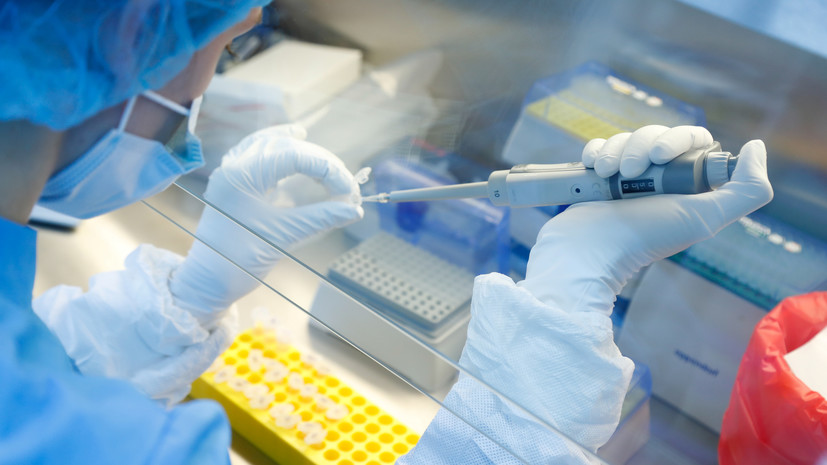A vaccine against coronavirus infection developed by the Ministry of Defense of the Russian Federation together with the N.F. Scientific Research Center for Epidemiology and Microbiology Gamalei, is able to provide immunity from COVID-19 for at least two years. This was announced by the director of the center Alexander Gunzburg.
He explained that the drug uses adenoviral containers to deliver genes encoding the “corona” protein in the virus.
“The vaccine is given twice. Moreover, the same gene is introduced on different carriers, which makes it possible not only to obtain protective protective immunity, but to receive it for an extended period of time, ”Gunzburg told the Krasnaya Zvezda newspaper.
He explained that the long duration of the drug was proved by the joint work of SIC and medical institutions of the Ministry of Defense of the Russian Federation in African Guinea on vaccines against the Ebola virus.
“Since the coronavirus vaccine was created on the same principle and on the same platform, there is a large share of confidence that in this case, the immunity that protects us will not last for three, four, five or six months, but at least two years or more, ”concluded Gunzburg.
In addition, the director of the center said that up to 70 million doses of the drug would be needed to mass vaccinate the Russian population. The Russian leadership and healthcare organizations are already taking steps to scale up vaccine production, he said.
Meanwhile, Iranian scientists have come to the conclusion that there is a relationship between the patient’s blood type and mortality from coronavirus. According to a study by RIA Novosti, people with a second blood group are more likely to die from complications caused by COVID-19. A preprint of the study is published on the MedRxiv portal.
It is noted that Chinese and American experts came to the same conclusions. All of them noted that patients with the third and fourth groups died less often, and scientists called people with the first blood group the least vulnerable to COVID-19.
Over the past 24 hours, 7,600 new cases of coronavirus infection have been detected in Russia, the largest number of them registered in Moscow - 1,068, and the Moscow Region - 506.
Also on russian.rt.com RT map: distribution of COVID-19 cases by regions of RussiaAn additional 4,705 people were cured of the disease in a day, 95 patients died, according to the site of stopcoronavirus.RF.
The total number of COVID-19 cases recorded in the country reached 592,280, for the entire time 344,416 people recovered, 8,206 patients died.
The Rospotrebnadzor noted that more than 17.2 million tests for the detection of coronavirus were conducted in the country. Under medical supervision remain 312 thousand people.
Meanwhile, Russian regions continue to remove or, on the contrary, extend the restrictive measures introduced due to coronavirus, based on the epidemiological situation.
So, the head of Chechnya, Ramzan Kadyrov, announced the third stage of lifting restrictions on coronavirus in the region. He explained that at this stage “self-isolation and“ stop-wheels ”regimes are canceled throughout the region.
“At the same time, there is a ban on mass events - from weddings to religious ceremonies, the activities of public catering facilities in closed rooms, some sports facilities ... In addition, COVID-19 certificates remain mandatory for passengers of flights arriving in Grozny,” he said. Kadyrov.
At the same time, the government of the Irkutsk region announced the extension of the regime of self-isolation until June 28. People over 65 and people with chronic illnesses are advised to stay at home.
When leaving home, you must observe the social distance, as well as the mask regime in public places, transport and at work.
The Chukotka authorities also extended the regime of self-isolation in the district until June 29. At the same time, arriving passengers are exempted from compulsory quarantine after express testing.
Earlier, spokesman for the Russian president Dmitry Peskov, speaking about the possibility of a second wave of coronavirus infection, noted that no one was safe from such outbreaks, but pointed to the positive current situation in Russia.
“But we are talking about averaged indicators and trends that are built from data throughout the country, and now we have a favorable trend,” he added.

